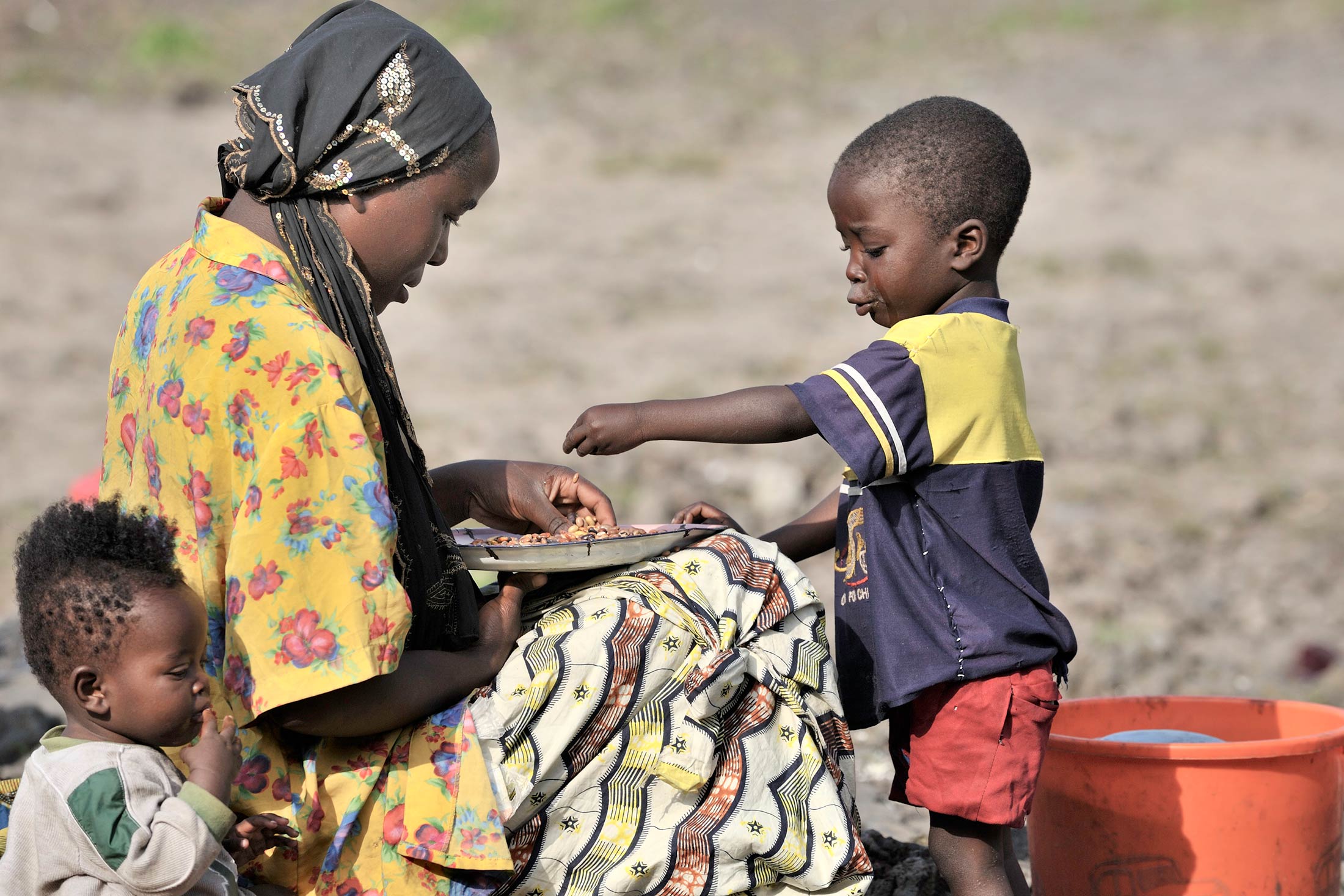
CLWR launches new project in Democratic Republic of the Congo
New project to provide treatment for malnourished children of internally displaced people
To help meet the nutritional needs of internally displaced people in North Kivu, Democratic Republic of the Congo (DRC), Canadian Lutheran World Relief (CLWR) is launching a two-year project in April 2017.
The project aims to provide treatment for approximately 3000 children under five who are experiencing malnutrition, provide support for 12,000 family members of malnourished children, and train health care professionals in the treatment of malnutrition.
CLWR will receive $1,057,722 in funding from Canadian Foodgrains Bank for the project, which will be implemented by Lutheran World Federation (LWF) Democratic Republic of Congo.
The project will:
- Stock Ambulatory Therapeutic Units and Intensive Therapeutic Units with therapeutic food, milk and medications essential to treat malnutrition
- Train health care professionals in the identification and treatment of malnutrition
- Offer cooking demonstrations for community members on how to cook with nutritious food that is locally available
- Support family members who have traveled with their child for malnutrition treatment
- Produce radio broadcasts about nutritional best practices
Ongoing conflict in North Kivu over the past 20 years has resulted in the displacement of over 835,000 people. As of August 2016, Rutshuru and Masisi Territories, where project activities will take place, hosted more than 283,000 internally displaced people. Over 10 per cent of those in Rutshuru and Masisi Territories are experiencing acute malnutrition.
“This project marks the first time we have been active in the Democratic Republic of Congo and we are grateful to the Foodgrains Bank and Global Affairs Canada for this new initiative,” says CLWR Executive Director Robert Granke.
“We will draw on our partnership with the LWF and our expertise in working with internally displaced peoples and in the areas of food security and nutrition to make a difference in the lives of many young children, their families and their communities,” he says. “Lives will be saved.”